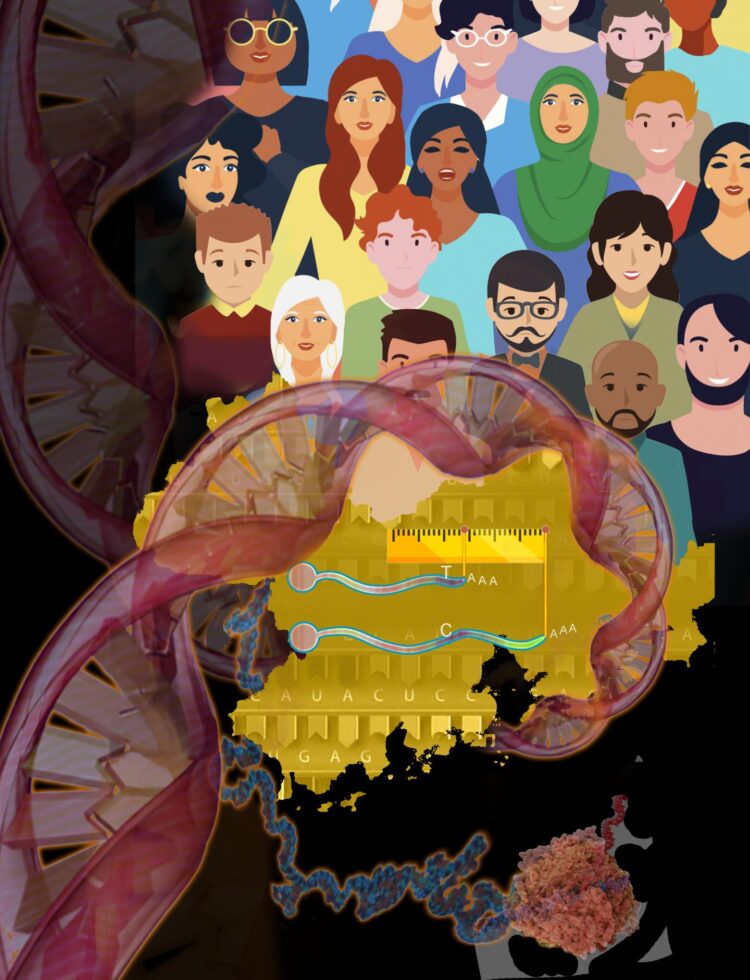New data contributes to knowledge about molecular mechanisms underlying human traits and diseases
Irvine, CA – June 1, 2021 – A new study analyzing the association between an individual’s genetics (genotype) and their observable characteristics resulting from the interaction of genetics and the environment (phenotype), contributes new knowledge to the understanding of human complex traits and diseases.
The study titled, “An atlas of alternative polyadenylation quantitative trait loci (3?aQTLs) contributing to complex trait and disease heritability,” was recently published in Nature Genetics. Led by University of California, Irvine professor of bioinformatics Wei Li, PhD, the Grace B. Bell chair of the Department of Biological Chemistry at UCI’s School of Medicine, this new research unlocks how much differences in people’s genes account for differences in their traits and what can be attributed to the effects of the surrounding environment.
“Our research is of particularly importance as it offers interpretations that explain how natural variations can shape human phenotypic diversity and tissue-specific diseases,” said Li. “Our most exciting finding was that certain events in human genes can explain a substantial proportion of trait heritability.”
It was well known that 3′-UTR alternative polyadenylation (APA) occurs in approximately 70 percent of human genes and substantively impacts cellular processes such as proliferation, differentiation and tumorigenesis. But, until now, the association of APA events with disease risk and complex human traits was not well understood.
Genome-wide association studies have identified thousands of noncoding variants associated with human traits and diseases. However, the functional interpretation of these variants has proven to be a major challenge. In this study, researchers constructed a multi-tissue atlas of human 3? UTR alternative polyadenylation (APA) quantitative trait loci (3?aQTLs), containing approximately 0.4 million common genetic variants associated with the APA of target genes, identified in 46 tissues isolated from 467 individuals (Genotype-Tissue Expression Project).
“From our findings we could show that specific molecular features associated with human phenotypic variations contribute substantially to the molecular mechanisms underlying human complex traits and diseases,” explained Li.
The research team is continuing to study these molecular mechanisms to test the novel 3?aQTLs genes for diabetes, prostate cancer, Alzheimer’s Disease and Amyotrophic lateral sclerosis (ALS).
###
The study was supported in part by the Cancer Prevention Research Institute of Texas and the National Institutes of Health.
About the UCI School of Medicine
Each year, the UCI School of Medicine educates more than 400 medical students, and nearly 150 doctoral and master’s students. More than 700 residents and fellows are trained at UCI Medical Center and affiliated institutions. The School of Medicine offers an MD; a dual MD/PhD medical scientist training program; and PhDs and master’s degrees in anatomy and neurobiology, biomedical sciences, genetic counseling, epidemiology, environmental health sciences, pathology, pharmacology, physiology and biophysics, and translational sciences. Medical students also may pursue an MD/MBA, an MD/master’s in public health, or an MD/master’s degree through one of three mission-based programs: the Health Education to Advance Leaders in Integrative Medicine (HEAL-IM), the Leadership Education to Advance Diversity-African, Black and Caribbean (LEAD-ABC), and the Program in Medical Education for the Latino Community (PRIME-LC). The UCI School of Medicine is accredited by the Liaison Committee on Medical Accreditation and ranks among the top 50 nationwide for research. For more information, visit som.uci.edu.
Media Contact
Anne Warde
[email protected]
Original Source
https:/
Related Journal Article
http://dx.





